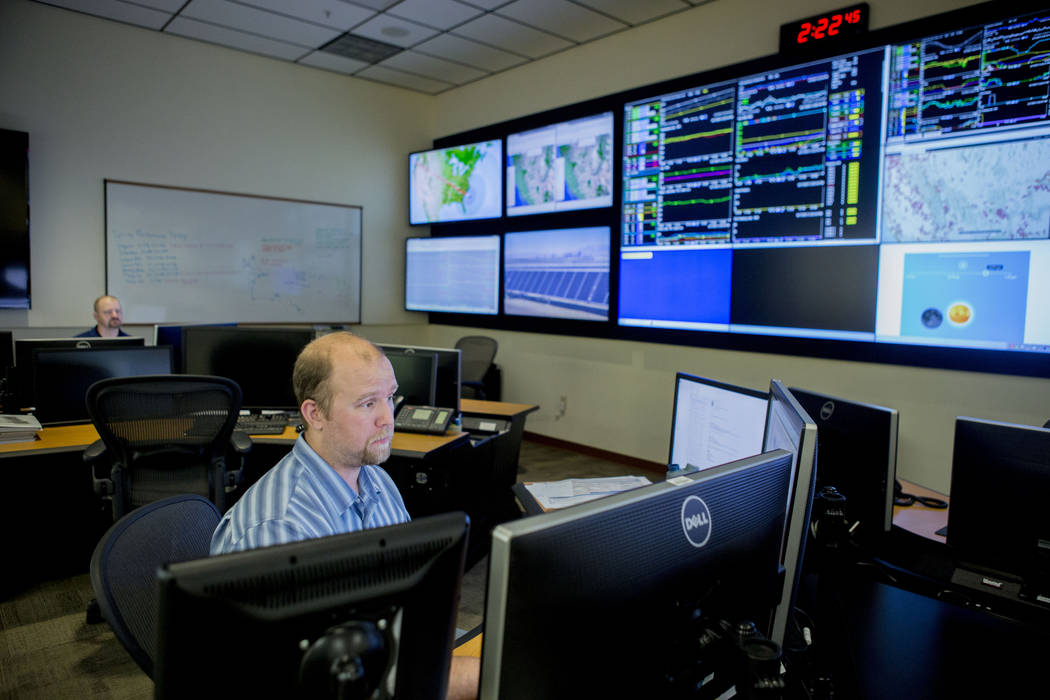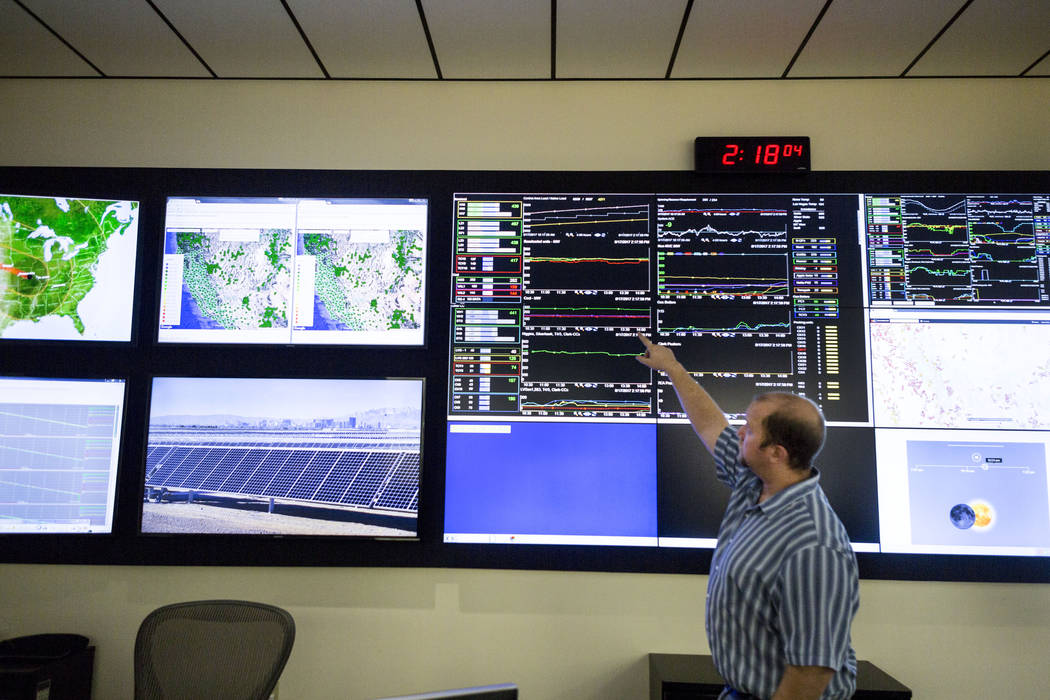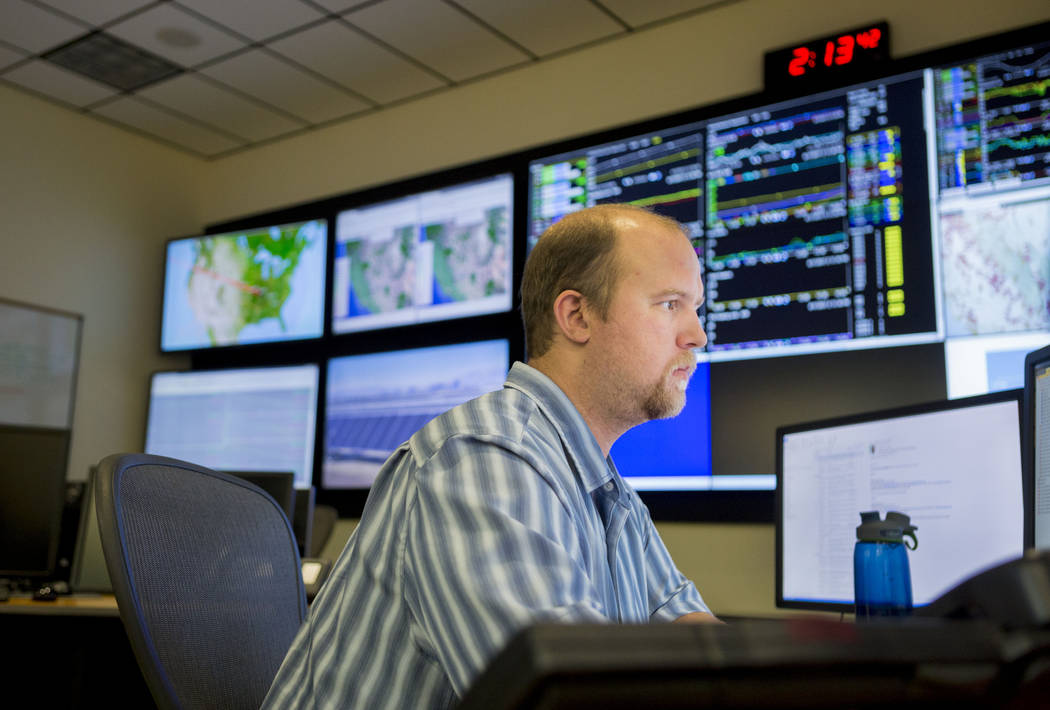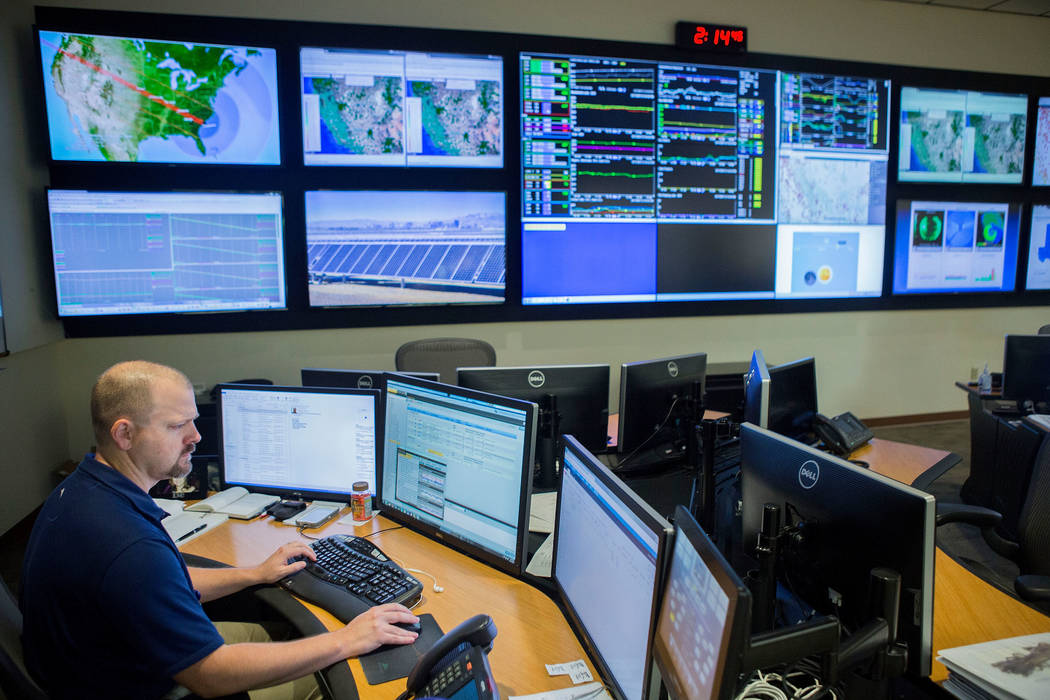NV Energy: ‘Don’t worry about the solar’ during eclipse
CARSON CITY — Go ’head, flip on that light switch Monday in the middle of the first total solar eclipse to come close to Nevada in 38 years.
Walk outside and check out the rare phenomenon of darkness during the day if you like.
The grid will be just fine. Even with 72 percent of the sun blocked in Southern Nevada for a brief period of time. And even with a dependence on solar energy that didn’t exist in 1979 during the last total eclipse in the contiguous United States.
But know this, too: The certainty of an uninterrupted energy supply is the result of work by utility company engineers all across the country who labor every day to ensure the pool pumps run and the AC stays on.
At NV Energy, a lot of preparation has gone into analyzing the effects of the eclipse, which is expected to first make its presence felt on the grid at a few minutes past 9 a.m., peak at about 10:20 a.m and be gone by noon.
“Our customers should not notice a thing,” said Kevin Geraghty, senior vice president of energy supply for the company. “But a customer will never know the work that had to go into it.”
It is new territory.
It is the first total eclipse to affect the United States since the development of solar power, from large projects to rooftop.
Solar-generated electricity for NV Energy on average provides about 5 percent of the demand, but during any moment of a given day it can be much higher, as much as 10 percent, Geraghty said.
U.S. energy suppliers do have some data to rely upon for the upcoming celestial event. Europe, which has a much greater reliance on solar energy production, was hit with an eclipse in March of 2015.
The region emerged unscathed, although utilities took the step of shutting down some solar production because of the complexities of managing the power coming and going.
That won’t be happening in Nevada, Geraghty said.
While an eclipse is an unusual event, utilities have to plan every day for potential interruptions in the supply of electricity, from a storm affecting solar production to a power plant shutdown to a fire affecting transmission lines, he said.
“We’ll just simply ride through it,” Geraghty said. “While that sounds easy, we have teams of people, engineers, operators, planners. This is all they do; 24-7, 365 this is their jobs. They literally try to figure out what will break the grid, and then they prevent it.”
The expectation is for a sunny day Monday that would have a brief effect on solar resources. But if it is a cloudy day, the effect on the grid will be next to nothing, he said.
Geraghty said the timing of the eclipse is interesting. It will hit just as solar facilities are ramping up, but demand likely will be curtailed somewhat with the darkness and cooler temperatures.
Coverage in Northern Nevada from the event will be about 78 percent of the sun, but in far northeastern Nevada the sun will be 95 percent occluded.
Any need for additional resources will come from the company’s gas turbines, but the nationwide grid also allows for the flow of additional resources from other areas, Geraghty said.
Nevada is fortunate because it has exceptional interconnected systems due in large part to the construction of Hoover Dam. There is also the Energy Imbalance Market that the utility has joined, which allows for purchase or sale of electricity within five- or 15-minute windows from other utilities for short-term power management.
As solar production grows, future eclipses may have the potential to be bigger factors for utilities, Geraghty said. The U.S. won’t have long to find out. Another total solar eclipse will hit the country on April 8, 2024. Utilities are already planning for it, he said.
“Don’t worry about the solar,” Geraghty said of the Monday eclipse. “The whole rest of the grid is there just for events like this.”
Contact Sean Whaley at swhaley@reviewjournal.com or 775-461-3820. Follow @seanw801 on Twitter.
Solar in Nevada
On a typical "blue sky" day, solar will serve about 10 percent of NV Energy's load at 10:30 a.m. The eclipse is expected to contribute to a loss of 500 megawatts of solar at its peak (depending on weather).

























